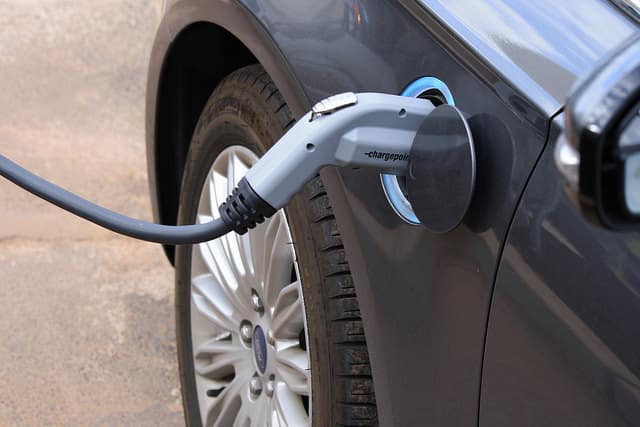Adopting new Advanced Clean Car standards will provide relief to Coloradans suffering daily from dirty air and the impacts of the climate crisis. Cars, SUV’s, light trucks and buses are the #1 source of Colorado’s most dangerous air pollutants and keep us reliant on volatile fossil fuels that wreak havoc on our family budgets and economy.
It is time for Colorado’s Air Quality Control Commission to adopt a standard that gets us to 100% pollution free new cars and trucks by 2035.
Colorado is poised to be a leader in the electrification of our transportation sector.
Now is not the time to go easy on our climate and pollution goals. We’re already experiencing the impacts of a changing climate in Colorado, including with extreme weather events. And people of color breathe disproportionate levels of these toxic pollutants, which contribute to higher rates of asthma, cancer, and other illnesses than their white counterparts.
Every year Colorado sees a dramatic uptick in the number of zero emission cars, SUVs and light trucks sold – and more models are becoming available every year. Meeting this goal is more realistic than the Governor is leading us to believe. Many auto manufacturers have already committed to 100% zero emission new cars by 2035.
Consumers will benefit from more choices of zero emission vehicles, and will save money on gasoline and maintenance.
Infrastructure is quickly being built out across the state and as our grid continues to electrify from more clean, renewable energy our transportation system can quickly become one of the cleanest in the nation.
OIL DEPENDENCE
The new Advanced Clean Cars standards will help lessen the impact of volatile oil prices on our economy and our wallets by transitioning us off of expensive fossil-fueled transportation. Colorado’s gas prices are linked to a global marketplace that is out of our control. We cannot drill our way out of a global oil market. Oil and gas prices are influenced – no matter where the oil comes from – by anything from bad weather to grounded ships and wars.
Electricity prices are more predictable and far less volatile than gas prices. Moving to 100% pollution-free mobility options, including public transit, means a family will never have to choose between feeding themselves or driving to work.
- Driving on electricity provides savings households can bank on. Consumer Reports finds that (with the national average gas ($4.31/gallon) and electricity prices ($0.14/kWh), EV owners could save between $1,800 and $2,600 in operating and maintenance costs for every 15,000 miles they drive (the average distance newer vehicles are driven in a year in the U.S.), compared to drivers of gas-powered vehicles.
- Electric car and SUV drivers will save money in overall operating and maintenance costs as long as gas prices are above 50 cents per gallon.
- An analysis by Atlas Public Policy found it’s already less expensive to own an EV than a similar gasoline model. For example, the Ford F-150 Lightning pick-up truck will be 17% cheaper to own than the gas-powered F-150, even though its initial sticker price is higher. It’s also cheaper to own the Volkswagen ID.4 compared to a similar SUV and a Chevy Bolt compared to a Toyota Corolla, Atlas found.
HEALTH AND EQUITY
In Colorado, cars, SUV’s, light trucks and buses are the largest drivers of air pollution that has long plagued the state. Advanced Clean Car standards will help millions of Coloradans breathe easier and live longer, better lives, especially in environmental justice communities but more needs to be done to fill the equity gaps that remain.
Our dire air quality problem is one of Colorado’s clearest examples of environmental racism. The new year-over-year sales targets for pollution-free, electric vehicles in the Advanced Clean Car standards are a floor, not a ceiling, and we need to do more to bring more of these vehicles to frontline communities.
Bottom line: more zero-emission vehicles means a safer, healthier, cleaner, and less polluted environment in Colorado. Plus, Coloradans will save money and have more choice in the car they drive. The AQCC, at their October meeting, must enact the strongest possible new clean cars rules.
